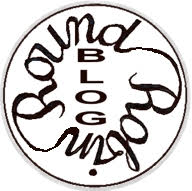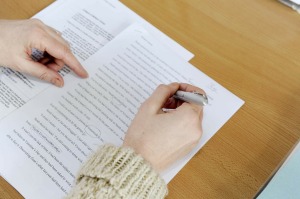It’s time for this month’s authors’ Round Robin, and author Robin Courtright has set us another excellent topic…

How do you self-edit your books before submitting or publishing?
When I wrote my first novel I knew very little about the editing process. In my naivety, I thought

editing involved checking for spelling mistakes and picking up on grammatical errors.
I’ve learned a great deal since then, and my ideas about editing have changed completely. Although details are important, people will generally forgive a typo here or there, or the odd time you said ‘which’ when you meant ‘that’. Unless your manuscript is riddled with this type of mistake, minor errors won’t generally make a reader put a book down.
There are some important areas that could easily lose your readers’ interest, though. In order to self-edit, you need to be able to take a step back from your story and to try and establish where it works and where it doesn’t.
This is hard to do when it’s your own novel, and this is where asking a trusted person to read it through is invaluable. Before you pass it on to someone else, though, there are many areas you need to try and look at for yourself.
Here are my 7 tips for self-editing your book. These are also the key areas I examine when I’m editing for others.
1. Is the tension strong enough to carry the story?
All great stories revolve around tension and conflict,from Thomas the Tank Engine to Pride and Prejudice. Some writers think tension is all about the spine-tingling music you hear in a horror film, but tension doesn’t have to be urgent or thrilling. The reader just has to be keen to know what happens next.
The dramatic tension could arise through something simple, like Gilbert Blythe pulling Anne of Green Gables’ pigtails. Now Anne refuses to speak to him. Will she ever relent?

A lack of tension is one of the prime reasons a reader will put a book down, and it’s the weakness that’s the most difficult to spot when you self-edit. Ask yourself what’s at stake in each scene, and with each piece of dialogue. Do your characters have opposing goals? Will the reader anticipate conflict? At it’s most basic, will the reader ask herself, ‘What happens next?’ If you’ve written a scene in which you’ve answered every question, and there’s nothing more to add, then why would the reader turn the page?
2. Does your story lack focus?
This is a similar problem to the lack of tension, and again, one that’s very difficult to spot in your own writing. Ask yourself, ‘what is my book about?’ Have you started drifting away from the original premise? Your book should have one strong, single thread connecting every scene and piece of dialogue. Are you writing lots of scenes that are well-written in themselves, but aren’t connected to your original idea? Have you been hit with a different idea halfway through writing your novel, and decided that one was better, and now you’re going off in a different direction?
I posted last week on how to keep your story’s focus. If you drift here and there, the story will lose tension and readers will put the book down.
3. Do your characters behave consistently?

It takes a long time for me to ‘get to know’ my characters. When I start writing a new book, I have a certain idea about a character, but only the same vague idea I might have when someone tells me about a friend of a friend. I might know the person is in her forties, hard-working and friendly, for example. It isn’t until I’ve reached a certain point in writing the book that I know exactly how this character will behave or speak in any given situation.
Because it takes me a long time to get to know a character, when I read my novel back, I sometimes discover the character spoke or behaved differently on page 10 to the way they do on page 100.
This is where it helps to put the manuscript away for a few weeks. Any inconsistencies will leap out if you read your novel with fresh eyes, as a reader would.
4. Is your story’s opening strong?
The opening scene is the one I agonise over and edit and rewrite the most. This is the scene that’s going to hook your reader – or else have them put the book back on the shelf and pick up something different. The opening is also what will make agents and publishers decide whether to take you on or not. So, no pressure!
You need to write an opening that will make the reader want to read on – but you also have

to be careful not to create an exciting opening that has nothing to do with the rest of the story. You need an inciting incident, you need to show off your author voice, and you need to introduce characters the reader will care about. Not much to ask!
The best advice I can give here is not to stress too much about your opening scene when you first type ‘Chapter One’. The important thing is to start writing. You can write the entire novel and then go back and write the opening it deserves.
I’ve sometimes found my opening scene actually happens in Chapter Three, and when I go back to edit the manuscript I end up deleting the first two chapters, which were full of exposition and scene-setting and not much happening.
5. Is there too much telling, and not enough showing?
‘Show, don’t tell’ is one of my most frequent comments in the margins of the manuscripts I’m editing. When it comes to my own novels, though, I’m as guilty as anyone else at spotting where I’ve told the reader a set of facts rather than let them come out naturally through dialogue and action.
I wrote an article a while ago on why show, not tell is such a hard slog. How do you recognise when you’re guilty of it in your own writing?
Here are a few phrases that are warning signs:
- ‘To feel’. ‘He felt angry’ does the job, but if you rewrite to show the character slamming out of the house, or tapping his pen on the desk, or compressing his lips to bite back a retort, then the scene comes alive.
- ‘Was’. ‘The garden was full of the signs of spring’ also does the job, but is lifeless. Try rewriting to show the sun breaking through the clouds, the snowdrops poking through the soil, the birds returning, etc.
- ‘Realised’. ‘Sarah realised the garden was full of the signs of spring’. This tells the reader what happened, but showing is so much more interesting. ‘Sarah glanced up. The first starlings of spring were returning’, etc.
6. Have you dumped a lot of information?

An ‘info dump’ is telling the reader something on a larger scale. You need the reader to know a character’s backstory, or their personality traits, or to describe how a group or society or whatever works. Again, it’s not always easy to spot for yourself when you’re simply dumping information, but one sure sign is that nothing whatever is happening in real time.
As you read through your novel, ask yourself if anything is happening in a particular passage. If it feels like a lot of info, ask yourself what would happen if you cut it all. Readers actually enjoy working things our for themselves. do you really need to spoonfeed them?
If the info is vital, you’ll need to exercise some ingenuity and try to show it in a more interesting way. Sometimes an entire scene is needed to get one single piece of information across – but if it’s a scene that engages the reader’s emotions, then it’s well worth writing.
7. Are your characters stereotypes? The trouble with stereotypes is that most of us don’t even notice them – they’re just ingrained in our way of thinking. I try and be conscious of not creating stereotypes in my own writing, and I try and look out for it in other writers’ manuscripts when I’m editing. I recently edited a crime novel in which there was not one woman in a professional job. No women police officers, solicitors, forensic scientists, or lawyers. Try and ask yourself if you are guilty of something similar.
Do you really need to mention someone’s skin colour or sexuality? Is it integral to the plot? Is your alcoholic character a wife-beater or else homeless? There are plenty of addicts who are decent people and able to hold down a steady job. Ask yourself if your character is behaving in the way you think people like this behave, or is based on reality.
And a final bonus tip: Don’t feel overwhelmed at the self-editing stage. Here again, there are many times when I wish I could practise what I preach and follow my own advice. I’ve often read through a first draft and thought it was absolutely terrible, and that I’d never be able to rewrite it as I wanted to. But don’t cry! Everything can be salvaged if you just take it one step at a time.
*
Are you a writer? Do you have any tips for editing your own work?
Have you ever read novels that you thought could do with better editing – and what made you think so?
If you have any comments at all, I’d love to hear from you. And if you’d like to hear what the other authors in the Round Robin have to say on this subject, please click on the links below…
Skye Taylor http://www.skye-writer.com/blogging_by_the_sea
Diane Bator http://dbator.blogspot.ca/
Beverley Bateman http://beverleybateman.blogspot.ca/
Connie Vines http://mizging.blogspot.com/
Anne Stenhouse http://annestenhousenovelist.wordpress.com/
A.J. Maguire http://ajmaguire.wordpress.com/
Dr. Bob Rich https://wp.me/p3Xihq-1yE
Victoria Chatham http://www.victoriachatham.com
Judith Copek http://lynx-sis.blogspot.com/
Rhobin L Courtright http://www.rhobincourtright.com


Leave a Reply